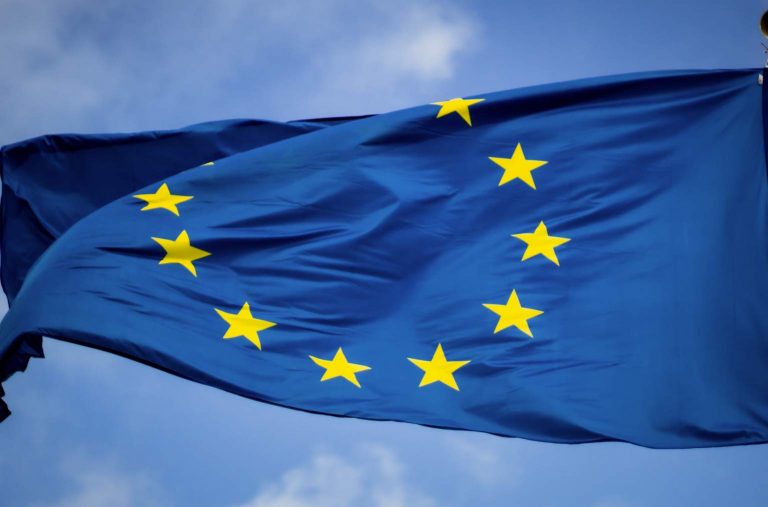
Why is everyone so happy?!
Discussion and Analysis by Charles Porter:
Deputy Governor of the Bank of England, Dr. Ben Broadbent, gave a speech two weeks ago on Brexit and interest rates. The take away message from the speech was that a disharmony between a happy public and negative markets is driving inflation. The Deputy Governor suggested that there is a “pessimistic view of Brexit in financial markets”. In contrast, households are “sanguine” about Brexit; happy that it’s going well and optimistic about a good exit.
The beliefs, or at least publicised sentiment, of politicians is frequently in accordance with markets. David Davis has frequently been quoted to attribute the odds of a ‘no deal’ and WTO reversion at around 50%. The wider Bank of England and its Governor, Mark Carney, have shown comparable cynicism about Brexit.
So the question remains, why is the public so happy (or why are markets and politicians so downbeat)? Let’s go with the former: I don’t really know. However, one thing is for sure; it’s not limited to the United Kingdom and Brexit.
Look at Germany. The general election passed over two months ago with a weak but unequivocal win for Merkel’s Cristian Democratic Union. Since then, negotiations to establish the so-called ‘Jamaica’ coalition collapsed with impassable FDP resistance.
The instability of these talks should have been understood in conjunction with the (now unfounded) reluctance of the SPD to entertain talks with Ms Merkel’s Union. Similarly, although the Germans are rather inclined to low inflation, its concomitant unimpressive economic growth should inspire concern in the domestic economy.
Inflation, as measured the consumer price index, was read once again last week. It did show a moderate up-tick in annualised inflation to 1.8%. Therefore, the rate of inflation within the single currency’s largest economy is improving, however, still below target.
One would therefore anticipate that public sentiment within Germany would be mild-to-weak; certainly not resoundingly positive. That’s simply not the case. The German population, just as the UK public, plainly seems to be far too happy.
The ifo Institute’s Business Climate Index, is incredibly inflated. The report suggests that, in Germany, we are well inside economic boom territory; at the highest level since before the 2008 financial crisis. This sentiment seems unjustified. Across the struggling Eurozone as a whole, a comparable IHS Markit report shows composite sentiment at a 79-month high.

What is both amazing and concerning is that the current level of sentiment, or ‘happiness’, in Germany would be indicative of a rate of economic growth close to 6%; a reality unlikely to set in any time soon, if ever. Of course, this calculation and regression is based upon spurious assumptions including a linearity between sentiment and output. However, the model does fit well and a set of expectations that are likely to be undermined is dangerous both for the domestic economy and the single currency.
Having recently tested 1.20 against the US Dollar once again, the Euro could be overvalued. With monetary policy in the Euro area likely to stagnate for the foreseeable future, at least until the asset purchase program expires, markets have been rather sensitive to data, including soft data.
The single currency is never going to enter into a bubble in a characteristic sense. However, there is a danger it will become gradually overvalued, creating downside potential within the Euro.
Click Here to Subscribe to the SGM-FX Daily Newsletter
Related Insights

Daily Brief – Sterling
Sterling No sooner had the financial press written that Sterling was on the skids due to the Chancellor being on the way out, than PM Starmer woke up to the need for some TLC for his beleaguered Chancellor and executed a handbrake turn to administer some gruesome bedside cheer to the apparently on life support […]

Daily Brief – EU Inflation
EU Inflation With the ECB annual symposium meeting in sunny Sintra, Portugal, inflation is very much on President Lagarde’s mind ; that is because it is showing signs of rising with the monthly inflation rate showing an increase of 0.3% and that presages a break above the target 2% rate just as she and her colleagues […]

Daily Brief – Gold
Gold With Gold accounting for the second highest proportion of Central Bank reserves after the USD and the mood music shifting to it assuming a greater influence on future reserves management, it is worth looking at the numbers behind that. In the 1960s, Central Banks held the highest amount historically of 38,000 tons of gold. […]


 Humphrey Percy
Humphrey Percy